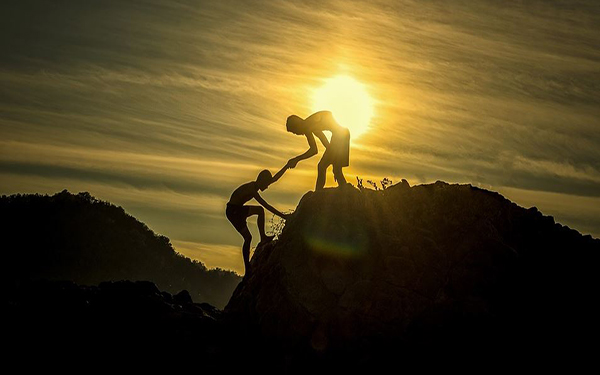
Trust is a fundamental pillar of society. But it is broken.
Last week I heard a speech by Richard Harris, the anaesthetist who was a central figure in the Thai cave rescue, helping to sedate the stricken boys before they dived into the water to exit the flooded cave.
Here was the ultimate act of trust. These boys, their families, the world, put their trust into the hands of Dr Harris and his peers. And an amazing result, or what most, including Dr Harris, have described as a miracle, was achieved.
But in the age of Trump and fake news, trust, it seems, is broken – trust in media, in governments, and in organisations is at an all-time low.
A Roy Morgan research poll this week found the most trusted brand in Australia is Aldi – a German supermarket chain.
Aldi entered Australia in the early 2000s to disrupt the Coles and Woolworths grocery duopoly and has earned this trusted position for the simple reason it does what it says it will – deliver quality products at a lower price by switching big brands for home brands and focusing less on marketing, merchandising and loyalty programs and more on customer satisfaction.
Bunnings, with its lowest prices guaranteed, and ING, delivering simple, straightforward products, and Qantas, with its commitment to safety, service and reliability, all made Roy Morgan’s latest list of the top 10 most trusted brands. They did so by living and breathing their brand promise.
Trust is an interesting concept as it is both rational and emotional. It is something we think but also feel. Why do we believe (or not believe) online reviews? Why are we comfortable with Uber and getting into cars with strangers? Or using Airbnb to rent houses from strangers? Or going on dates with someone we’ve only “met” on an app?
The thing about trust is that it is hard to earn but can be easy to lose. Or put another way, it’s easier to maintain trust than restore it.
Take my brother-in-law, for example. He had his business, home and both cars insured with NRMA and had been a loyal customer for 26 years. He had trusted (as clearly do many Australians, given NRMA is also among the top 10 most trusted brands) that he was getting a good deal. So he was surprised when he recently got his car insurance renewal from NRMA and it was $200 more expensive than the previous year. A fair hike in anyone’s book.
After calling the NRMA and pleading his case he was told there was nothing it could do, so he rang around and found an alternate car insurance policy for $480 cheaper. That’s right, $480. Suffice to say he won’t be so trusting of NRMA anytime soon.
Trust is earned by not only doing what you say, but doing it consistently and for all. Perhaps there is a lesson in this for our politicians too.
The Roy Morgan survey not only looks at the most trusted brands but also the brands with the largest distrust scores. Unsurprisingly, in the wake of the royal commission into banking and financial services and ongoing negative headlines, AMP and the big four banks have some of the biggest distrust scores.
The inaugural Deloitte Trust Index launched this week found that only 20 per cent of Australians believe that banks in general are ethical – that they do what is good, right and fair.
Trust doesn’t discriminate, either. Facebook, among the world’s most valuable brands, is also on this least trusted list. The issues of the past year have hit its brand hard. Privacy and data protection are now at the forefront in the minds of many users.
So why does trust matter? RBA Governor Philip Lowe put it bluntly when he said this week: “Our economy, and our society, works best when there are high levels of trust.”
For organisations, trust is rewarded with loyalty and conversely, Roy Morgan says, distrust can lead to customer churn and loss of market share, and it is a bellwether for an unsustainable future.
The bottom line: if I trust a brand I am more likely to buy it time and time again, and perhaps even more important, recommend it to others. It’s the barbecue effect. And in case you are wondering, my wife does our shopping and chooses our insurance. I suppose that means she’s the only one I trust.
*This article first ran in The Sun-Herald.

